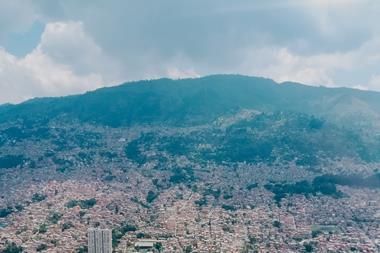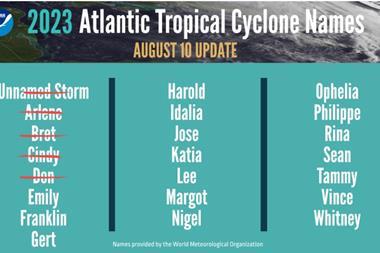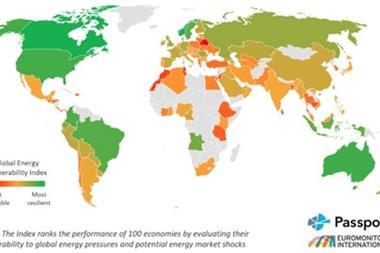If you have subsidiaries in developing countries, you could face unexpected claims, warns Fiona Gill.
The House of Lords' landmark judgment in Lubbe & Ors v Cape pic is very important for all UK based multinationals, particularly those with subsidiaries in developing countries. The case, involving personal injury claims, is an attempt by the claimants' lawyers to pierce the corporate veil, breaking down the legal barriers between a parent company and its subsidiary. It could open the gates for other claims against UK parents, for example involving pollution in the wake of an an environmental disaster. The decision may also encourage law firms to recruit clients from any countries that they can establish have not got a legal system that will deliver substantial justice.
In this particular case, the House of Lords did not consider that South Africa could properly try a group action, despite having an established civil litigation system and available contingency funding. Relatively few developing countries have sophisticated legal systems, let alone group action procedures. Even fewer provide legal aid for those on low incomes, or have contingency or conditional fee arrangements in place.
A suitable forum?
In February 1997, five South African residents (Lubbe & Ors), funded by the Legal Aid Board (England and Wales), began an action against the defendant, Cape pic in England. They alleged that Cape was liable for respiratory illnesses that they suffered as a result of being exposed to asbestos dust at three locations in South Africa. Most of the claimants were employed by Cape's South African subsidiaries. However, they alleged that Cape controlled its South African operations and owed them a duty of care.
Initially, Cape was successful in the High Court in staying the case in England on the grounds that South Africa was a more suitable forum for the trial. However, the Court of Appeal lifted the stay and Cape was refused leave to appeal to the House of Lords. A defence was served irf January 1999.
A few days after this, Cape received, without prior warning, a further writ. This named 1,539 other claimants - all South African residents - also receiving legal aid. Cape applied to stay both this (known as the Afrika action) and the Lubbe actions on the grounds that South Africa was now clearly the more suitable forum for trial. It argued that both actions should be heard together as a multi-party situation. The Court of Appeal had not been informed of the true nature and size of the litigation when it decided to lift the stay in 1998.
The High Court and the Court of Appeal both agreed and imposed the stay. The Court of Appeal found no evidence to suggest that South African funding would not be available for such a high profile case. It also held that the South African judicial system would be able to devise and use suitable procedures for the trial of the action.
In this, the Court of Appeal's decision followed the US "public interest" approach in the case of the Union Carbide Corporation in December 1984. This had involved personal injury claims following the accidental release of gas from a chemical plant in Bhopal, India. The defendant company was resident in the USA, but the majority of claimants were Indian residents. The US courts stayed the action on the grounds that India had a greater interest in trying the case than the USA.
In July 2000, the House of Lords, led by Lord Bingham, unanimously reversed the Court of Appeal's decision and lifted the stay, allowing the actions to proceed in England. It believed that the claimants would not get substantial justice in South Africa.
Spiliada and funding
The principles set out in Spiliada v Cansulex (1987) 1 AC 460 require a defendant, seeking to stay an action on the grounds of forum non convenient, to show there is a more suitable alternative forum available for trial. Lord Bingham agreed with the lower courts that South Africa was a more appropriate forum - "the personal injury issues tipped the balance very clearly". However, he held that the claimants had shown, under stage 2 of Spiliada, that they would not get substantial justice in South Africa. Therefore, the actions should proceed in England. He also disavowed public interest as a factor which should influence the court's decision.
The House of Lords accepted the claimants' contention that, in the absence of legal aid in South Africa, there was no reasonable likelihood of South African lawyers taking on the case on a contingency fee basis. The absence of a developed procedure for handling group actions in South Africa was an additional factor, which was also relevant to the funding issue.
Questions
The House of Lords' decision was based on the specific facts of this case. Other companies targeted by claimants' lawyers maybe more successful in resisting English jurisdiction if the factual position differs.
The following important questions remain to be determined by the English courts in the Lubbe/Afrika litigation:
The House of Lords' decision may impose a substantial burden on the English court system and the Legal Services Commission (formerly the Legal Aid Board). It also has serious financial implications for companies and their insurers, who could end up having to provide cover for unanticipated risks.
--
Fiona Gill is an associate in Davies Arnold Cooper's product liability and mass ton group, and has been significantly involved in the Cape case, Tel: 020 7293 4255, E-mail: fgill@dac.co.uk



















